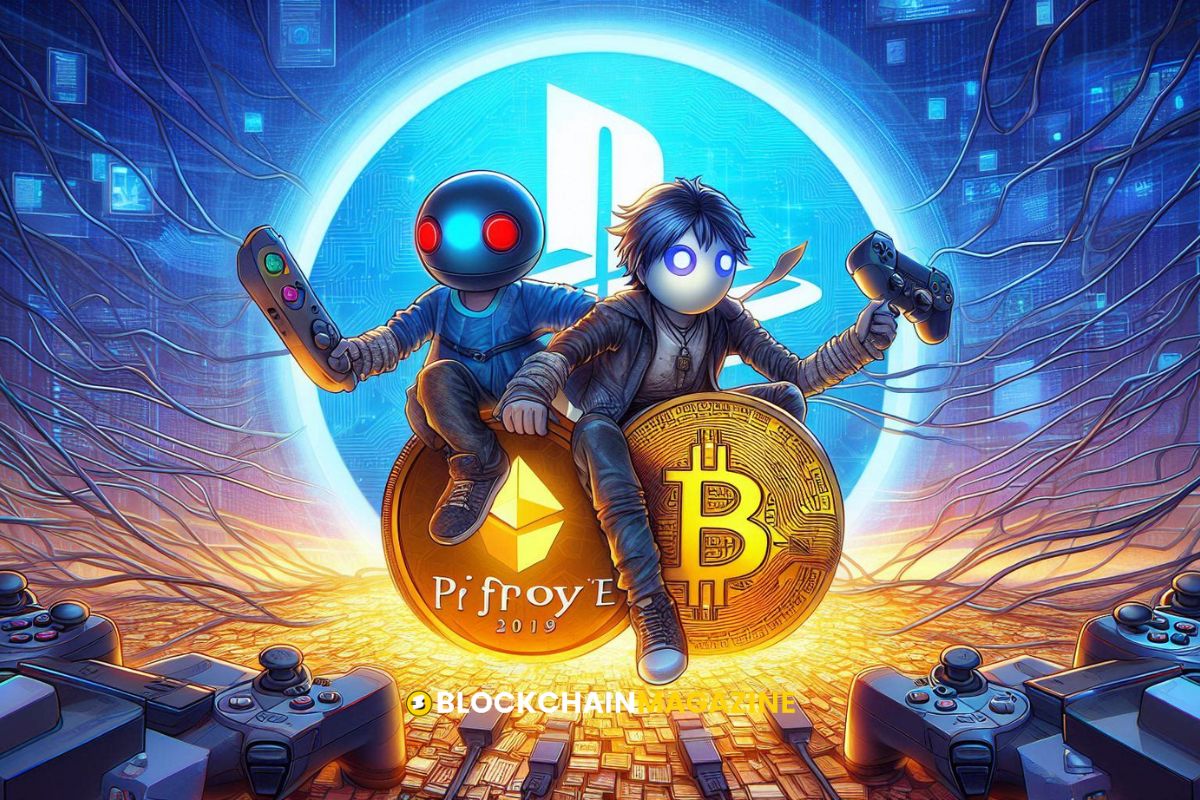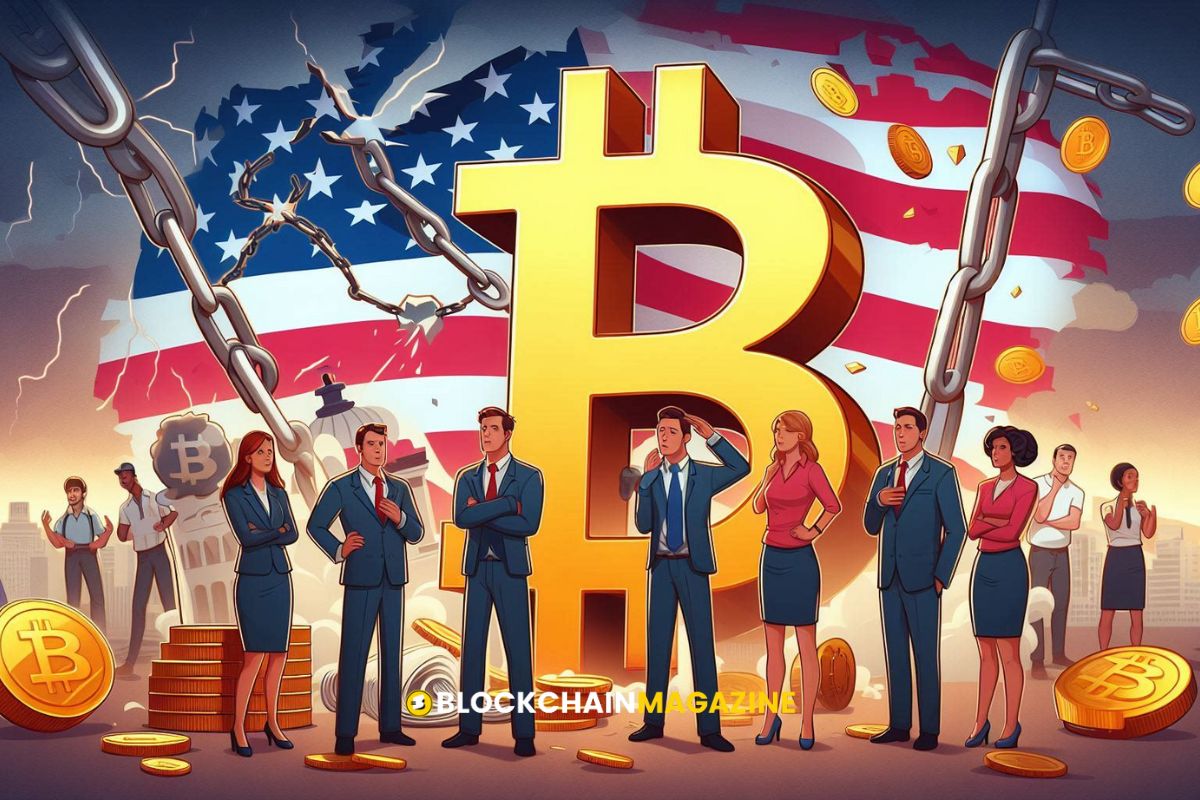Gaming Titans, Sony and Microsoft Embrace Blockchain
Sony and Microsoft, two of the biggest names in gaming, have been making significant moves towards blockchain technology in recent years. This is an important development, as it has the potential to not only revolutionize the gaming industry but could also be the Trojan horse that makes blockchain a mainstream possibility.
Sony’s Blockchain Initiatives
Sony has been at the forefront of exploring blockchain technology’s potential in gaming. They have filed a patent for a system allowing players to transfer digital assets between PlayStation titles using blockchain technology. This system would enable unified progress and asset ownership across different games rather than having assets locked to individual games. Moreover, Sony has also explored tokenizing in-game assets, allowing players to sell and trade them on secondary markets. These initiatives could significantly enhance player experience by offering true ownership and interoperability of digital assets.
Also read: Insights on Bitcoin Halving and the Future of Crypto by Arthur Hayes
Microsoft’s Blockchain Plans
Microsoft’s approach to integrating blockchain into gaming is equally ambitious. Leaked documents suggest that Microsoft plans to add crypto wallets to Xbox, allowing players to trade assets across different platforms securely. Additionally, Microsoft’s strategic acquisitions, such as the pursuit of Activision Blizzard and the acquisition of Savage Game Studios for mobile, hint at a broader vision of integrating blockchain technology across their gaming ecosystem. This could provide gamers and developers with new opportunities for secure and transparent transactions.
The Growing Market for Blockchain Gaming
The blockchain gaming market is poised for significant growth. Estimates suggest that the market’s value in 2025 could be up to 10% greater than in 2022. Several factors are driving this growth, including the increasing popularity of play-to-earn games, the growing demand for more immersive and engaging gaming experiences, and the rising adoption of blockchain technology by game developers and publishers. These trends indicate a promising future for blockchain gaming.
Also read:‘Don’t Get Involved!’, JP Morgam CEO Jamie Dimon on Bitcoin
Why Blockchain in Gaming?
The traditional gaming industry primarily generates revenue through game sales, in-game purchases, and subscriptions. However, these models often limit player ownership of in-game assets and focus monetization strategies on microtransactions and downloadable content (DLC). Blockchain technology, on the other hand, offers unique advantages such as true ownership of in-game assets, new revenue streams for players and creators, and more transparent and secure game economies. Players can earn real-world value, influence game development decisions through community governance, and receive dividend-like payouts or staking rewards distributed to token holders. Ownership of characters, items, and currency also means that players can trade or sell those assets on secondary markets or use them in other blockchain games.
Historical Parallels: Blu-ray Adoption
This wouldn’t be the first time Sony has brought previously niche, cutting-edge technology to the masses. In the early 2000s, Sony was one of the leading proponents of the Blu-ray disc format. Blu-ray eventually won the format war over HD DVD and became the standard for high-definition optical discs. By partnering with other major companies, Sony created a critical mass of support for Blu-ray, which helped it become the dominant format. Including a Blu-ray player in the PlayStation 3 — followed by the PS4 and PS5 — put a cost-effective, high-definition movie cinema in over 239 million homes worldwide. The year before the launch of the PS3, the average cost of a Blu-ray player was more than $1,000 — and it didn’t play games, unlike the $500 console.
Challenges and Opportunities
Despite the potential, there are challenges ahead. Web3 games are currently excluded from major gaming platforms and marketplaces to prohibit applications that issue or allow the exchange of cryptocurrencies or non-fungible tokens (NFTs). However, those hurdles could be lowered or eradicated with the might of two major gaming powerhouses pushing the agenda. Significant players like Sony, Microsoft, and Nintendo dominate the gaming console market. However, these platforms have yet to offer decentralized game development or digital asset ownership. On the other hand, various blockchain-based games exist. Still, no unified hardware platform optimizes the gaming experience for blockchain-native games, and all games are limited to personal computer use.
Existing Blockchain Gaming Hardware
Sony and Microsoft aren’t first to market in the blockchain gaming niche. Several existing blockchain gaming hardware products are available, such as the Oculus Quest 2 and HTC Vive Pro 2 VR headsets, which have blockchain games available for play today. Additionally, various high-end gaming laptops like the Alienware x17 R2 and Asus ROG Zephyrus G15 support blockchain gaming. However, these devices feel like those early Blu-ray players in terms of cost and inaccessibility to all.
Innovative Blockchain Gaming Devices
Some innovative blockchain gaming devices are emerging at more accessible price points. The WOWCube, for instance, is a 3D puzzle game console that allows players to interact with the digital world by twisting, shaking, and tilting the device, reminiscent of a Rubik’s cube. The company behind it has announced that they are working with developers to create blockchain games for the device. In 2021, Atari released a new version of its iconic VCS designed for blockchain gaming, featuring a built-in wallet and support for multiple blockchains. It comes pre-loaded with many blockchain games, including Atari Pong, Atari Breakout, and Atari Asteroids, and supports sideloading additional blockchain games. The Anbernic RG552, a handheld retro gaming console, can also be used to play blockchain games via the open-source RetroArch emulator.
Potential for Mass Adoption
The involvement of major gaming companies like Sony and Microsoft could be pivotal in bringing blockchain to the mainstream. These platforms could offer decentralized game development and digital asset ownership on consoles, paving the way for mass adoption. The history of technological shifts, such as the adoption of Blu-ray, suggests that gaming could indeed be the key to putting blockchain technology into the hands of the general public.
Case Study: PlayStation Home and the Metaverse
Reflecting on missed opportunities, PlayStation Home could have been leagues ahead of anything Meta and others are creating to bring the metaverse to the home and office. It strangely disappeared when the PS4 launched, but its concept of a virtual social space could have thrived with blockchain integration. This missed opportunity serves as a reminder of the potential for future blockchain applications in gaming.
The Role of Mobile Gaming
Microsoft’s acquisition of Savage Game Studios for mobile hints at the potential for blockchain in mobile gaming. With the growing popularity of mobile games, integrating blockchain technology could open up new possibilities for cross-platform gameplay and digital asset management. This move aligns with Microsoft’s broader strategy of expanding its gaming presence and leveraging blockchain technology to enhance the gaming experience.
Community and Governance in Blockchain Gaming
Blockchain gaming introduces the concept of community governance, where players can influence game development decisions. This model empowers players, giving them a say in the evolution of the games they play. Successful implementations of community governance can be seen in various blockchain projects, where player feedback and participation directly impact the development process. This participatory approach fosters a sense of ownership and investment among players, further driving engagement and loyalty.
Economic Impact of Blockchain Gaming
The economic impact of blockchain gaming is significant. It opens up new revenue streams for players and developers through the sale and trade of digital assets. Blockchain technology ensures transparent and secure game economies, where transactions are verified and immutable. Players can earn real-world financial benefits, creating an incentive to participate in blockchain gaming ecosystems. This new economic model has the potential to reshape the gaming industry, providing more equitable opportunities for all stakeholders.
Conclusion
Sony and Microsoft’s move towards blockchain is a significant development for the gaming industry. Blockchain has the potential to revolutionize the way games are designed, played, and monetized. While challenges remain, the involvement of major gaming companies could help overcome these barriers and pave the way for mass adoption. If successful, gaming could indeed be the gateway to mainstream blockchain adoption, significantly impacting the global technology and cultural landscape.
FAQs
- What are the benefits of blockchain technology in gaming?
- Blockchain offers true ownership of in-game assets, new revenue streams, transparent and secure game economies, and community governance, among other benefits.
- How is Sony planning to integrate blockchain into PlayStation?
- Sony has filed a patent for a system that allows players to transfer digital assets between games and is exploring tokenizing in-game assets for trade and sale on secondary markets.
- What are Microsoft’s blockchain plans for Xbox?
- Leaked documents suggest Microsoft plans to add crypto wallets to Xbox, enabling secure trading of assets across platforms, and their strategic acquisitions hint at broader blockchain integration.
- What challenges does blockchain gaming currently face?
- Blockchain games are often excluded from major gaming platforms, and there is no unified hardware platform optimized for blockchain-native games.
- Can blockchain gaming be accessible to all players?
- While current blockchain gaming hardware can be costly, more accessible devices like WOWCube and Atari VCS are emerging, and major companies’ involvement could further democratize access.
Stay informed with daily updates from Blockchain Magazine on Google News. Click here to follow us and mark as favorite: [Blockchain Magazine on Google News].
Get Blockchain Insights In Inbox
Stay ahead of the curve with expert analysis and market updates.
latest from tech
Disclaimer: Any post shared by a third-party agency are sponsored and Blockchain Magazine has no views on any such posts. The views and opinions expressed in this post are those of the clients and do not necessarily reflect the official policy or position of Blockchain Magazine. The information provided in this post is for informational purposes only and should not be considered as financial, investment, or professional advice. Blockchain Magazine does not endorse or promote any specific products, services, or companies mentioned in this posts. Readers are encouraged to conduct their own research and consult with a qualified professional before making any financial decisions. The featured image used is just a creative depiction of the title and it does not intend to hurt sentiments of any person or institution. If it hurts anyone sentiments, please do not hesitate to reach out to Blockchain Magazine.

 Bitcoin
Bitcoin  Ethereum
Ethereum  XRP
XRP  Tether
Tether  Solana
Solana  USDC
USDC  Dogecoin
Dogecoin  Cardano
Cardano  Lido Staked Ether
Lido Staked Ether  TRON
TRON  Wrapped Bitcoin
Wrapped Bitcoin  Wrapped stETH
Wrapped stETH  Chainlink
Chainlink  Avalanche
Avalanche  Sui
Sui  Stellar
Stellar  Litecoin
Litecoin  Toncoin
Toncoin  Shiba Inu
Shiba Inu  Hedera
Hedera  LEO Token
LEO Token  USDS
USDS  Hyperliquid
Hyperliquid  Polkadot
Polkadot  WETH
WETH  MANTRA
MANTRA  Bitcoin Cash
Bitcoin Cash  Bitget Token
Bitget Token  Ethena USDe
Ethena USDe  Wrapped eETH
Wrapped eETH  Uniswap
Uniswap  Monero
Monero  NEAR Protocol
NEAR Protocol  Pepe
Pepe  WhiteBIT Coin
WhiteBIT Coin  Ondo
Ondo  Aave
Aave  Bittensor
Bittensor  Aptos
Aptos  Internet Computer
Internet Computer  Dai
Dai  Official Trump
Official Trump  Mantle
Mantle  Ethereum Classic
Ethereum Classic  OKB
OKB  Tokenize Xchange
Tokenize Xchange  Gate
Gate  sUSDS
sUSDS  Sonic (prev. FTM)
Sonic (prev. FTM) 




